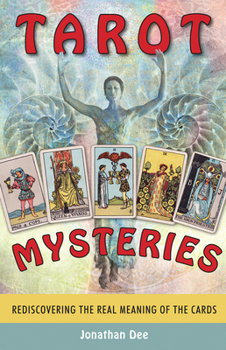Tarot Mysteries: Rediscovering the Real Meaning of the Cards
Select Format
Select Condition 
Book Overview
This is a practical and accessible guide to one of the most popular divination systems. What makes this book different from the others is that it:
Provides instruction on reading both the Major and Minor ArcanaExplains why the cards are the cards, why each picture forms part of a sequence, and why they occupy a mystical place in our consciousnessGives a balanced and informative perspective on each of the cards, as well as an overview of the entire deckProvides a history of the tarotConnects the tarot to the Qabalah
Dee is a life-long tarot reader and historian. He traces the spiritual origins of the cards from Celtic mythology and Hebrew mysticism to Renaissance theatrical productions and the stars and planets of astrology. He also examines how past scholars thought about the tarot and how that thinking has changed to make the cards meaningful for today's readers. This wide-ranging primer provides readers with everything they need to know about the tarot and provides fresh insights into the cards.
An illustrated edition of this title was published by Sterling in 2003.
Customer Reviews
Rated 4 starsGreat book, uses word "stupid"
Great book just like all the other Berenstain Bears books with lots of lessons about life. We have at least a dozen of these books and most are from the First Time Books series. My only warning is that one of the "bad" bears calls another one "stupid". While this may have been done for effect and I may be overreacting, I believe it is unnecessary. I don't want my kids thinking it is an OK word to use because it is in a...
0Report
Rated 5 starsHello
This was a pretty good book. It was good for several reasons and they are it was realistic, it taught a lesson, and it was funny. The first reason why this was a good book because it was realistic. To this very day people are still having wild slumber parties with unexpected guests. Next, this was a good book because it taught a lesson. In the end Lizzie Bruin learns that she shouldn't have had a slumber party without...
0Report
Rated 4 starsAn OK Book
This book is pretty good. First, Sister Bear gets invited to a slumber party at her friend Lizzy's house. She tells her that only a few friends will be over.It turns out, many, many more kids come to Lizzy's slumber party. The slumber party turns into a popcorn throwing, soda-spilling mess because Lizzy's parents weren't home during the slumber party.The neighbors call the police since so much noise is coming from Lizzy's...
0Report
































